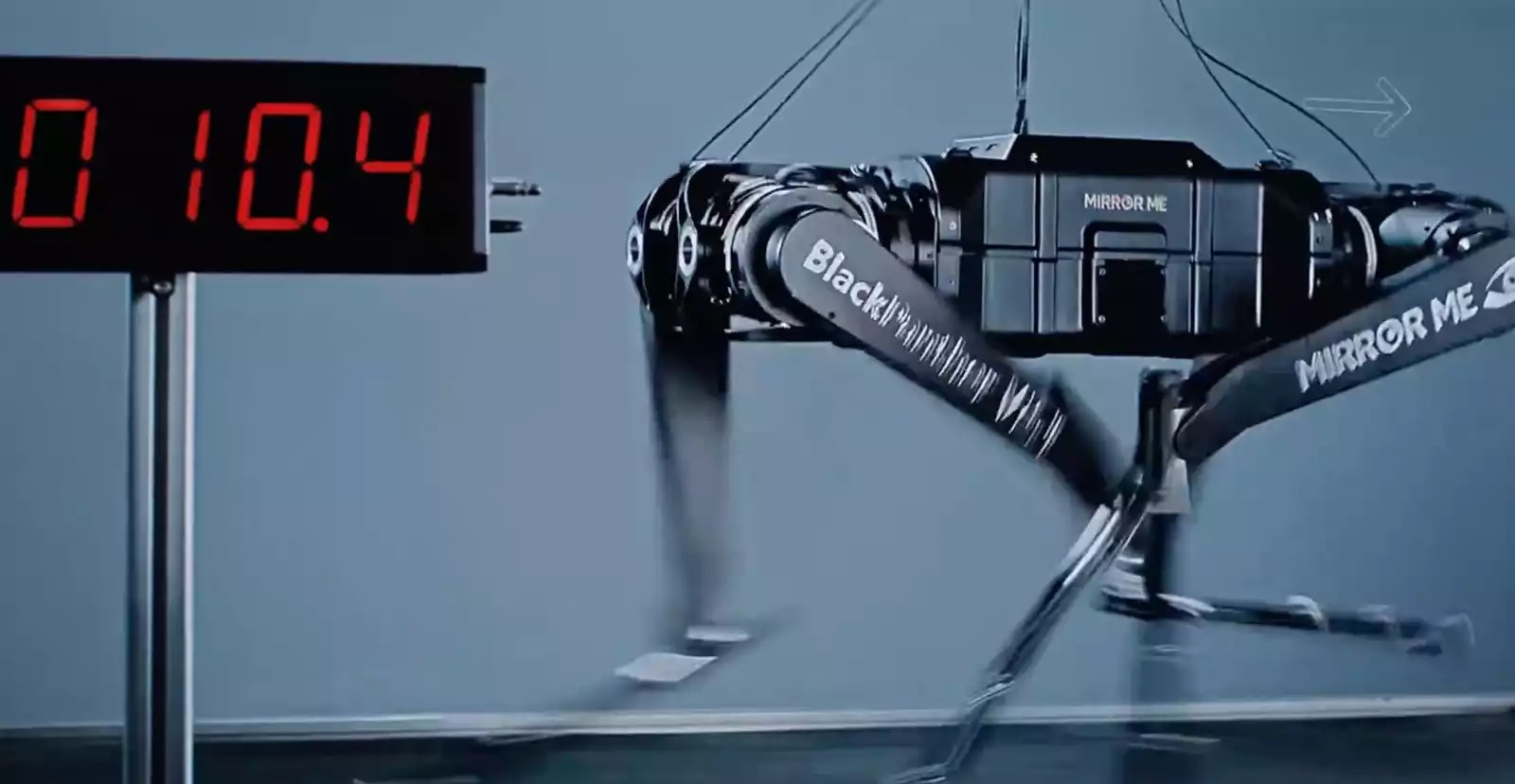Physical Address
Gujarat, India
Physical Address
Gujarat, India

The race for robotic excellence has reached a new milestone, with China's quadruped robot, Black Panther 2.0, sprinting near to the record books. Developed by Zhejiang University’s Humanoid Innovation Institute and Hangzhou-based startup Mirror Me, this mechanical marvel clocked an astonishing 100 meters in just 10 seconds.
Book Suggested : ROS 2 from Scratch: Get started with ROS 2 and create robotics applications with Python and C++
Black Panther 2.0 draws its inspiration from some of the most agile animals in the wild—black panthers and jerboas. Its design incorporates features of these creatures to achieve unparalleled speed and efficiency. The robot’s legs are equipped with spring elements to absorb shocks and maintain momentum, while its “feet,” modeled after panther paws, provide a 200% boost in grip. Additionally, its carbon-fiber shins, inspired by the jerboa’s structure, enhance stiffness by 135% with only a slight 16% increase in weight.
Standing at just 0.63 meters tall and weighing 38 kilograms, Black Panther 2.0 is a compact powerhouse. The use of lightweight carbon fiber materials and high-performance motors ensures an optimal balance of speed and stability. The robot can take five strides per second, demonstrating an extraordinary combination of power and precision. It recently reached a top speed of 10.4 m/s on a treadmill, surpassing the majority of human sprinters.
Artificial intelligence (AI) and machine learning enable Black Panther 2.0 to adapt to different terrains seamlessly. By leveraging the Huygens’ linked pendulum concept, it synchronizes its limbs for smooth, fluid motion. This adaptability, combined with its cheetah-inspired “running shoes” for enhanced traction, makes the robot not just fast but also efficient and versatile.
Creating a prototype of Black Panther 2.0 took just three months by the Mirror Me team, highlighting their efficiency in robotics engineering. Still, the official record is currently held by South Korea’s Hound robot, which completed the 100-meter run in 19.87 seconds. While Black Panther 2.0 still trails behind nature’s fastest animals like cheetahs and ostriches, it has redefined what machines can achieve in speed and mobility.
Black Panther 2.0 is more than just a technological marvel; it represents a significant leap forward in the field of robotics. With its groundbreaking design and performance, it opens up new possibilities for applications in search and rescue, military operations, and beyond.
This “speed demon” robot is a reminder that the future of robotics isn’t just about mimicking nature but also pushing beyond its limits. As technology continues to evolve, Black Panther 2.0 might just be the beginning of a new era of high-speed, high-performance robotic companions.
Leave a Reply